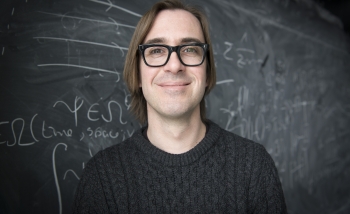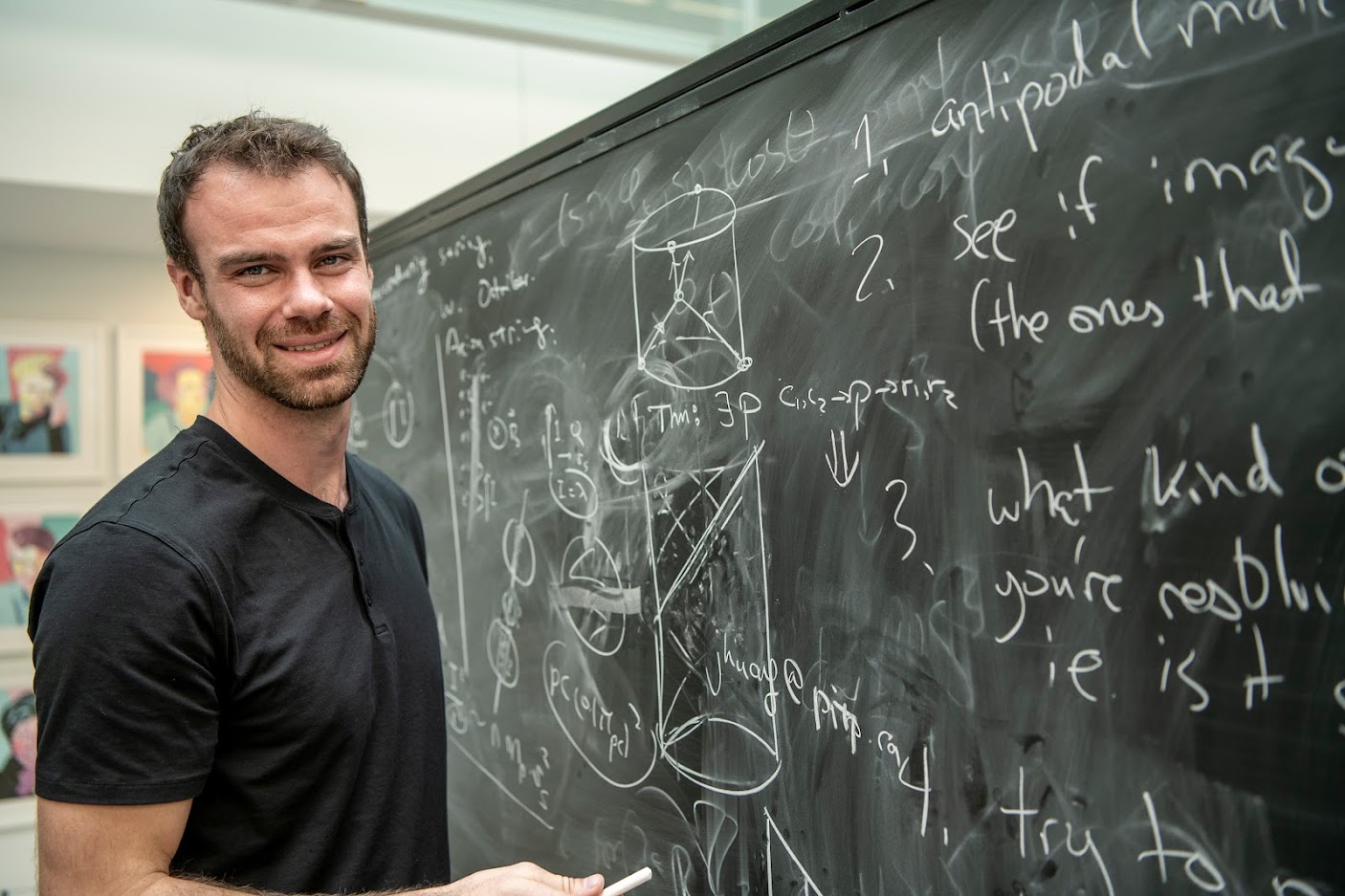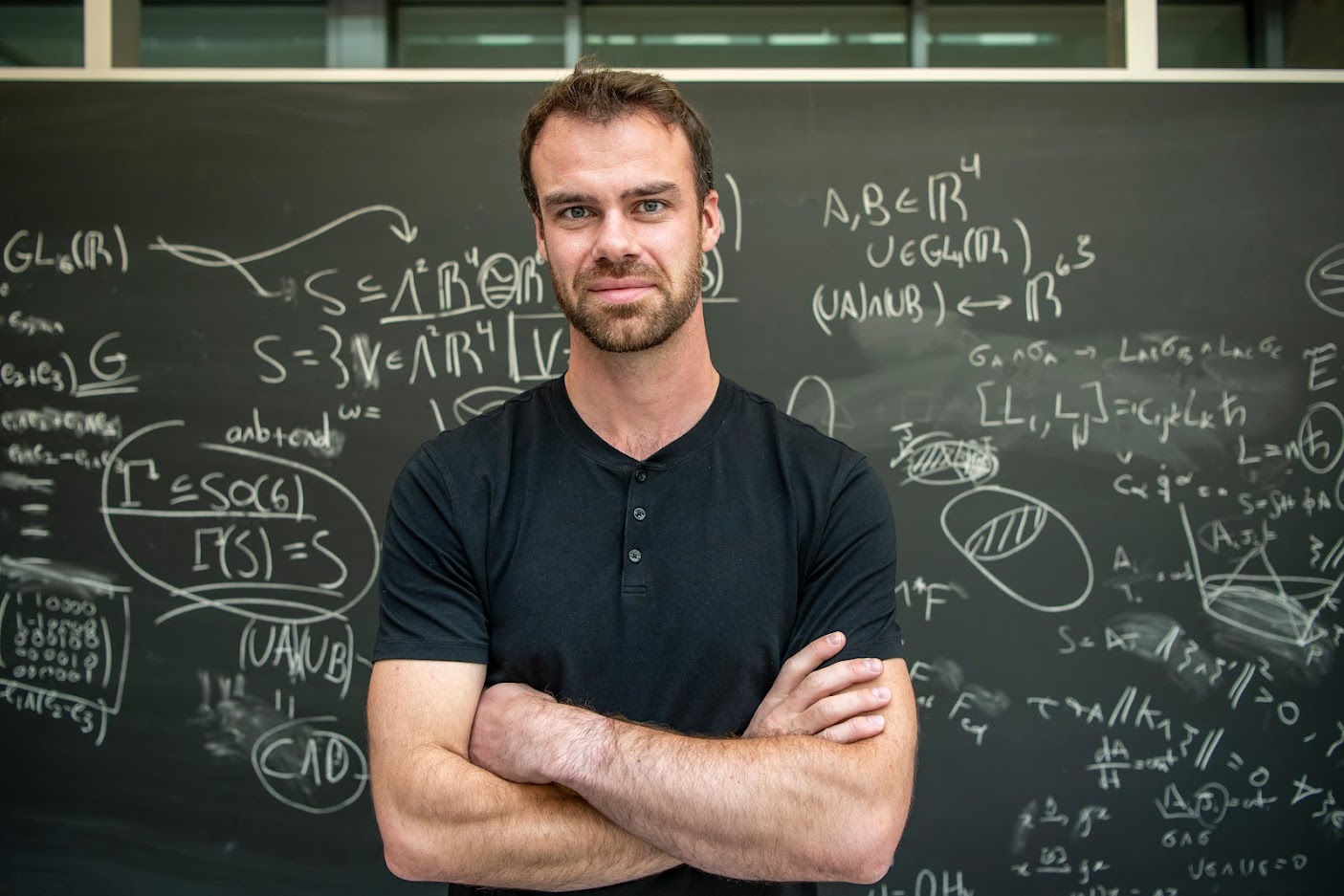Perimeter is pleased to welcome its newest Research Faculty member, Alex May, who joins the Institute in June 2023.
May’s research combines quantum information with quantum gravity, applying ideas from each field to the other. He is also interested in quantum foundations – the underlying mathematical and conceptual basis for quantum theory.
“Perimeter is one of the few places that has that expertise,” says May “and I’m excited to interact with the quantum foundations folks.”
May’s current research uses quantum information theory, especially tools first developed for use in cryptography, to develop new perspectives on the anti-de Sitter/conformal field theory correspondence, or AdS/CFT. This theory proposes a relationship between quantum gravity and quantum field theories.
“There's a particular subject within quantum information theory that was developed originally in the context of quantum cryptography, known as ‘non-local quantum computation.’ We've recently realized that it is an important subject for understanding AdS/CFT,” says May.
May believes knowledge also flows the other way: AdS/CFT can offer new insights into quantum cryptography too.
Non-local quantum computation was previously an interesting but niche subject in cryptography, without very close connections to other subjects. But May and his peers have recently come to understand that it is actually intimately entwined with many of the core subjects in cryptography. By extension, all those core subjects now also have ties to AdS/CFT and quantum gravity.
“The connection between cryptography and gravity has suddenly become very rich and deep and I’m excited about pushing that connection forward,” says May. Commenting that the cryptographic subjects he studies have practical implications, May noted his intrigue with “the interface between fundamental research and more practical or technological kind of questions. Perimeter was founded with that kind of connection in mind.”
Originally from Vancouver, May did his undergraduate degree at McGill University, and completed his PhD at the University of British Columbia in 2020. He later held a two-year postdoctoral fellowship at Stanford University. His arrival at Perimeter is, in some ways, taking him full circle.
“Perimeter has been on my radar for a long time,” he says. “As an undergrad I had a chance to come here and visit, and I was really blown away with the place. I was this young 19-year-old going all starry-eyed when I saw PI. It's exciting to now have a position here and be branching into exciting new directions in physics.”
When asked what motivates him to do theoretical physics, May says that his research is part of a much bigger picture, a grand project that aims to piece together how the universe functions:
“Like everyone at Perimeter, I'm just excited about trying to address really fundamental questions about how the universe works. How did it begin? What will happen in the distant future? There are all sorts of exotic scenarios. Are we living on some brane in some higher dimensional space? Is there a multiverse of some sort?” he says. “I would love to understand all these things.”
About PI
Perimeter Institute is the world’s largest research hub devoted to theoretical physics. The independent Institute was founded in 1999 to foster breakthroughs in the fundamental understanding of our universe, from the smallest particles to the entire cosmos. Research at Perimeter is motivated by the understanding that fundamental science advances human knowledge and catalyzes innovation, and that today’s theoretical physics is tomorrow’s technology. Located in the Region of Waterloo, the not-for-profit Institute is a unique public-private endeavour, including the Governments of Ontario and Canada, that enables cutting-edge research, trains the next generation of scientific pioneers, and shares the power of physics through award-winning educational outreach and public engagement.
You might be interested in
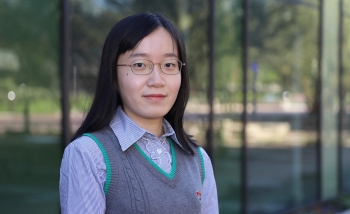
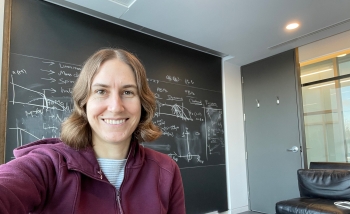
Katie Mack to join Perimeter as Hawking Chair in Cosmology and Science Communication
December 6, 2021
